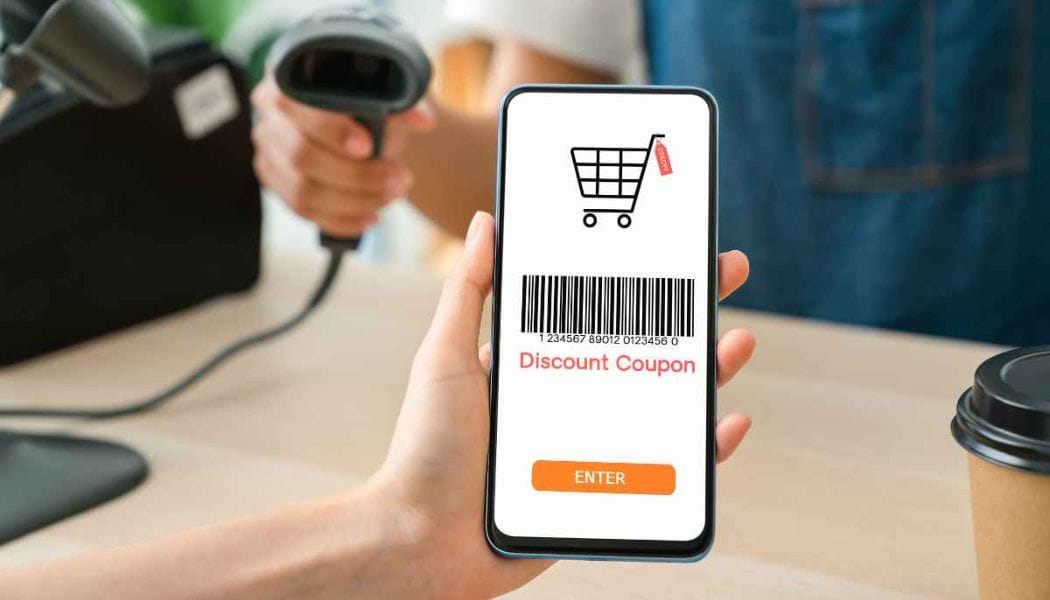The Ultimate Guide To Using Coupons For Homeowners
Master couponing to overcome home maintenance costs. Beyond groceries, it's a key skill for savvy homeowners to cut expenses. This guide shows how.

In the quest for savvy homeownership, mastering the art of couponing emerges as an essential skill for navigating the financial challenges of maintaining and enhancing one's living space. The perception of couponing, often relegated to grocery shopping, barely scratches the surface of its potential.
So, whether you're a seasoned couponer looking to refine your approach or a newcomer eager to slash your household expenses, this guide promises to equip you with the tools and knowledge to make couponing a valuable part of your homeownership experience.
What Are Coupons and How Do They Work?
Coupons are a form of marketing tool used by manufacturers and retailers to promote sales and encourage consumers to try new products or services. They offer a discount or rebate on the purchase price when presented at the time of purchase. Coupons can come in various formats, including paper coupons found in newspapers and magazines, digital coupons available online, such as Bountii or through mobile apps, and codes used for online shopping.
The primary function of a coupon is to provide a financial incentive for consumers to purchase a specific product or service. When a customer uses a coupon, they are typically required to meet certain conditions set forth by the issuer, such as purchasing a specific item, buying a certain quantity, or reaching a minimum total purchase amount. Upon meeting these conditions, the discount is applied, reducing the total cost for the consumer.
Coupons are designed to motivate customers into purchasing items they might not typically consider unless enticed by a special offer. For businesses, it's a way to increase sales volume, clear out inventory, introduce new products, and attract new customers. For consumers, coupons offer a way to save money on everyday purchases or try new products at a reduced risk.
Types Of Coupons
Coupons are a popular way for businesses to attract customers by offering discounts or deals on products and services. They come in various forms, primarily categorized into digital and paper coupons. Each type has its unique features, advantages, and uses, catering to different audiences and shopping habits.
- Digital Coupons
Digital coupons like the ones from EarthWeb or other money-saving websites offer discounts and promotions online. They are typically accessible through smartphones, computers, or digital devices and are often distributed through email, social media, websites, or mobile apps.

Features:
- Easily Accessible: Can be accessed anytime and anywhere via a digital device.
- Eco-Friendly: Eliminates the need for physical materials, making them more environmentally friendly.
- Tracking And Personalization: Businesses can track the usage of digital coupons and offer personalized deals to customers based on their shopping behavior.
Advantages:
- Convenience: Customers can store and redeem coupons without carrying physical copies.
- Instant Updates: Customers can receive real-time updates about new deals and expiring discounts.
- Wide Reach: Businesses can reach a broader audience across geographical boundaries.
Uses:
Digital coupons are widely used in e-commerce, food delivery apps, retail store apps, and digital marketing campaigns.
- Paper Coupons
Manufacturers and retailers print paper coupons on paper or cardstock and typically distribute them through the mail, newspapers, flyers, or in stores.

Features:
- Tangible: Customers can physically hold and present them at the time of purchase.
- Simplicity: Easy for all age groups to use, especially for those who may not be tech-savvy.
- Collectible: Some customers enjoy collecting paper coupons as part of their shopping routine.
Advantages:
- No Technology Required: Redeeming paper coupons does not require a smartphone or internet access.
- Targeted Distribution: Businesses can target specific geographic areas or demographics with paper coupon distribution.
- Physical Reminder: Having a physical coupon can serve as a reminder to use it before it expires.
Uses:
Paper coupons are commonly used in grocery stores, restaurants, and local businesses for promotional activities.
Effective Couponing Strategies For Homeowners
Practical couponing strategies for homeowners can lead to substantial savings on household expenses and improvements. By applying strategic couponing, homeowners can manage these expenses more effectively. Here’s how to extend couponing strategies specifically for homeowners:
- Home Improvement Store Coupons
Home improvement stores like Home Depot and Lowe's, along with local hardware stores, often offer valuable coupons to their subscribers. By signing up for their newsletters, homeowners can receive timely information on sales and exclusive coupon offers directly in their inbox.
Additionally, these stores frequently have loyalty programs that reward regular customers with special discounts, exclusive coupons, and early access to promotional sales. Engaging with these programs can lead to significant savings on a wide range of home improvement needs, from tools and materials to appliances.
- Manufacturer Coupons
Manufacturers of home-related products, such as cleaning supplies, paint, or garden equipment, often release coupons directly to consumers. By visiting the websites of these manufacturers and subscribing to their mailing lists, homeowners can access exclusive coupons and offers. This strategy can be particularly effective for high-ticket items or for products that are regularly used, enabling substantial savings over time.
- Online Marketplaces And Apps
Online marketplaces like eBay, Craigslist, and Facebook Marketplace are treasure troves for finding discounted home goods, furniture, and materials for do-it-yourself (DIY) projects. Additionally, apps and websites that specialize in offering coupons and discounts can be used to secure lower prices on a variety of home-related items.
Homeowners should explore these options to find deals from retailers who may also offer additional discounts through specific coupon codes, further reducing the cost of home improvements and maintenance.
- Seasonal And Clearance Sales
Timing purchases to coincide with seasonal sales events such as Black Friday, Memorial Day, or end-of-season clearances can lead to dramatic savings. Homeowners can further enhance these savings by combining sale prices with store-specific or manufacturer coupons. Planning major home improvement projects around these sales periods can maximize budget efficiency and allow for more ambitious projects at a lower cost.
- Energy Efficiency Rebates And Coupons
Governments and utility companies often offer rebates and incentives for homeowners who invest in energy-efficient upgrades. These can include discounts on energy-efficient appliances, insulation, windows, and heating, ventilation, and air conditioning (HVAC) systems. By taking advantage of these offers, homeowners can not only reduce their initial investment cost but also enjoy long-term savings through reduced energy bills.
- Bulk Purchase Discounts
For commonly used items or large projects, purchasing in bulk can lead to significant savings. Many home improvement stores offer discounts for bulk purchases, and certain coupons may apply exclusively to these larger transactions. This approach is especially beneficial for items with long shelf life, or materials needed for extensive home improvement projects.
- Cashback And Rewards Credit Cards
Utilizing a cashback or rewards credit card for purchases at home improvement stores or for online shopping can accumulate significant rewards or cash back. Homeowners should consider cards that offer the highest rewards for categories relevant to their spending habits, effectively reducing the overall cost of home maintenance and improvement expenses through cashback bonuses or points.
- Negotiating With Local Contractors
When hiring local contractors for home improvement projects, homeowners should not hesitate to negotiate. Asking if contractors accept competitors' coupons or if they offer discounts for mentioning an advertisement can result in unexpected savings. Many contractors are willing to negotiate prices, especially during their off-peak seasons, or may offer discounts to secure a new client.
- DIY Classes And Workshops
Local home improvement stores and community centers often host DIY classes and workshops. These sessions not only provide valuable skills and ideas for home projects but frequently offer participants discounts on the tools and materials needed for the projects taught in the class. Engaging in these educational opportunities can inspire homeowners to undertake projects they might have otherwise outsourced, saving labor costs in addition to receiving discounts on materials.
- Exchange And Share Coupons
Joining local or online homeowner groups and forums is a great way to exchange information and share coupons related to home improvement and maintenance. These communities often circulate high-value coupons and insider tips on upcoming sales and promotions. Sharing resources within these groups can lead to discovering discounts and deals that may be less widely advertised, fostering a culture of savings among like-minded individuals.
- Local Tax Credits Or Incentives
Homeowners should stay informed about any local government incentives or tax credits available for specific home improvements, particularly those enhancing environmental sustainability. These incentives can significantly reduce the cost of certain projects, making it financially feasible to undertake green renovations that may also lead to long-term savings on utility bills.
The Future Of Couponing
Advancements in technology are setting the stage for several key trends and innovations to redefine the distribution, access, and redemption of coupons, thus making savings more personalized, accessible, and integrated into the everyday shopping experience.
- Increased Personalization
With the rise of data analytics and artificial intelligence (AI), coupons are becoming increasingly personalized. Retailers and brands can analyze shopping habits and preferences to offer tailored discounts directly to consumers. This level of customization not only enhances the shopping experience but also increases the effectiveness of coupons as a marketing tool by targeting the right offers to the right customers at the right time.
- Mobile And Digital Dominance
As smartphone usage continues to grow, mobile coupons are expected to become even more prevalent. The convenience of having coupons available on a device that consumers carry everywhere cannot be overstated. Apps and mobile wallets will likely see enhanced functionality, allowing for more accessible storage, organization, and redemption of digital coupons, including location-based offers triggered by proximity to or presence in specific stores.
- Integration With E-Commerce
The seamless integration of coupons with e-commerce platforms will enhance online shopping experiences. Expect to see more sophisticated systems where coupons can be automatically applied at checkout without the need for manual entry of promo codes. Additionally, subscription-based models and membership programs might offer dynamic discounts and exclusive deals, further blurring the lines between traditional couponing and digital marketing.
- Augmented Reality (AR) and Virtual Reality (VR)
These technologies have the potential to revolutionize the way consumers discover and interact with coupons. For instance, AR could allow shoppers to see how a product looks in their home before purchasing, accompanied by a coupon that can be used instantly. Similarly, VR shopping experiences could incorporate virtual coupons that shoppers can ‘pick up’ and use within a digital marketplace.
- Blockchain And Cryptocurrency
Blockchain technology could introduce new ways to distribute and redeem coupons, ensuring authenticity and preventing fraud. Cryptocurrency-based rewards and discounts could also emerge, offering a new type of value exchange between retailers and consumers.
- Social Shopping
The influence of social media on shopping habits will likely increase, with platforms offering more integrated shopping experiences. Coupons and deals could be shared within social networks, influenced by trends, influencers, or viral marketing campaigns, making couponing a more social activity.
- Environmental Sustainability
As awareness of environmental issues grows, digital coupons will become even more popular due to their reduced environmental impact compared to paper coupons. Furthermore, we may see an increase in coupons and incentives related to sustainable and eco-friendly products and practices, encouraging consumers to make more environmentally conscious choices.
Conclusion
The guide to using coupons for homeowners is not just a pathway to financial savings but a reflection of the evolving relationship between consumers, technology, and the marketplace. By staying informed and adaptable, homeowners can continue to harness the power of coupons, ensuring that this timeless practice remains a valuable part of their financial strategy for years to come.




Comments ()